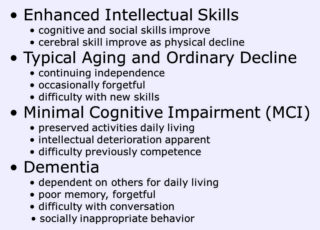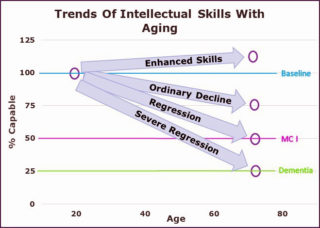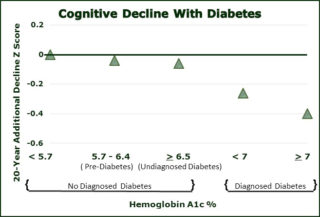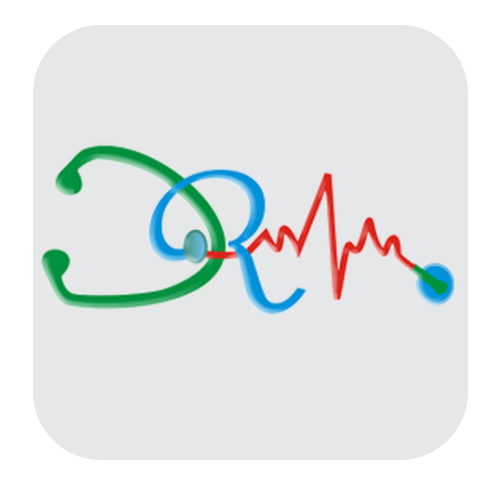Telehealth Reverse Diabetes and Maintain Your Brain | Free Trial In Texas

Cerebral function is your most important resource. You should look after your brain at least as well as you look after your car.
The same actions that reverse diabetes also maintain brain function. You actually can improve function as you get older.
Contact us to help you train and maintain your cerebral health. It’s a smart thing to do!
Brain Function As You Get Older
 We already know that brain damage is caused by alcohol, tobacco and drugs. You should add diabetes, overweight/obesity and hypertension to that list. Aging can go either way and we’ll talk about that.
We already know that brain damage is caused by alcohol, tobacco and drugs. You should add diabetes, overweight/obesity and hypertension to that list. Aging can go either way and we’ll talk about that.
One difficulty getting started is that cerebral deficit itself makes it less likely to be noticed. It’s not until you can’t find the keys to your car for the second time today or you can’t remember what day it is that you begin to suspect something’s not quite right.
There’s a lot to consider about declining brain function. We’re talking about Intelligence, Memory, Action and Reaction, Executive Control. Memory and quick recall are the most obvious.
All this at the same time physical decline is occurring. Aging decreases muscle strength, nerve function, balance, vision, hearing and skin tone.
There’s several paths the aging brain operating system might follow.


There are many causes for Regression in Competence on the path to MCI and Dementia. We’ve already mentioned diabetes, obesity and hypertension. There’s also destructive effects from physical inactivity, social isolation, stress, poor quality sleep, PTSD and depression.
Obvious features of Mild Cognitive Impairment usually are the first signs anyone becomes aware of. That’s too late! Intellectual skills have been deteriorating for 20 or 30 years. Note on the figure above that someone with diabetes by age 40 usually has already lost -20% of mental competence. Double that by age 60.
Also note that the Ordinary Decline in Intellectual Skills with Aging reaches -10% by age 40 and -20% by age 60. Even without diabetes, effects of overweight, physical inactivity, social isolation and simple laziness towards new skills damage intellectual function with aging.
 Diabetes in midlife and intellectual change over 20 years has been studied in 13,351 subjects. Those with diabetes had a larger decline in cerebral function than those without diabetes. The figure shows that subjects with prediabetes had measurable decline. Subjects with diagnosed diabetes had more than twice the decline. The decrease was greatest in those with greater levels of glucose in their blood.
Diabetes in midlife and intellectual change over 20 years has been studied in 13,351 subjects. Those with diabetes had a larger decline in cerebral function than those without diabetes. The figure shows that subjects with prediabetes had measurable decline. Subjects with diagnosed diabetes had more than twice the decline. The decrease was greatest in those with greater levels of glucose in their blood.
Measurements of Intellectual Executive Control showed the greatest loss in brain function.
The path of Enhanced Skills follows the same process as Reversal of Diabetes. Intentional Weight Reduction decreases cognitive impairment. Remission of Diabetes not only restores good health, it enhances Intellectual Skills.
 Exercise, healthful nutrition and social activity all enhance intellectual function. Studies have been done with 1,260 older individuals in Scandinavia. Results after two years showed that nutrition advice, exercise training and social support improved cerebral function. Analysis of 39 studies using exercise interventions in adults older than 50 showed 29% improvement after as little as six months.
Exercise, healthful nutrition and social activity all enhance intellectual function. Studies have been done with 1,260 older individuals in Scandinavia. Results after two years showed that nutrition advice, exercise training and social support improved cerebral function. Analysis of 39 studies using exercise interventions in adults older than 50 showed 29% improvement after as little as six months.
In these studies, moderate exercise appeared to be the most effective way to enhance intellectual function.
Intentional weight loss in elderly subjects showed substantial improvement in brain function. Nutritional counselling resulted in average weight reduction of about -5% body weight. Those who reduced weight by -10% body weight doubled their improvement in Executive Function score compared to the average for the entire group.
Dementia
Often, it’s difficult to say exactly what caused Dementia. However, type 2 diabetes and high blood pressure are the most common causes. It occurs in more than 10% of people over 65 years of age and causes 4% of deaths in the U.S.
More than 50% of patients who die with dementia have diabetes. Approximately 80% of patients with Alzheimer’s disease have diabetes and about 40% of patients with cerebrovascular disease have diabetes.
“Note that, 50% of patients with type 2 diabetes develop dementia.”
Executive Function

Executive functions are how the brain uses new information and previous experience to set, manage and attain goals. It’s the way to adjust what you’ve been doing all along into something different. If you’ve been eating hamburgers and French fries, it’s deciding to eat the hamburger without the fries. You have to think about it and remember that’s what to do.
In a corporate setting, the CEO decides to adopt a new way to do things. Operations will have to change. What will the other corporate officers want to do? How will the new plan work with trends in the marketplace? What about the employees? What will they lose or gain?
In our daily life, it is Executive Function that makes conscious decisions about what to do even when you suspect you’re not going to like it.
What Does This All Mean?
It all means that reversing diabetes not only restores good health, it enhances brain function. Also, much of your difficulty getting started is related to intellectual changes associated with Diabetes and Overweight/Obesity.
You also should note that gradual loss of Intellectual Executive Function makes it more and more difficult to reach and carry out your program to reverse diabetes. The longer you wait, the harder it gets.
But don’t be discouraged, it will get easier once you start improving your health!
One Small Request:
If you enjoyed reading this article, kindly give it a share. Your share is extremely helpful to spread our message and help more like you.




